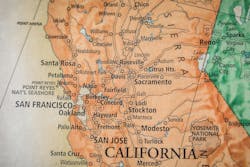Data Begins Flowing in California’s Data Exchange Framework
Manifest MedEx, the largest nonprofit qualified health information organization (QHIO) for the California Data Exchange Framework (DxF), said the nearly 200 organizations that selected Manifest MedEx as their data exchange intermediary are now meeting their data-sharing obligations under state law AB 133, which requires most healthcare entities in California to exchange health and social services information beginning this year.
Manifest MedEx is one of nine QHIOs designated by the California Health & Human Services Agency (CalHHS). The nine organizations that have been designated as QHIOs are:
• Applied Research Works Inc.
• Health Gorilla Inc.
• Long Health Inc.
• Los Angeles Network for Enhanced Services (LANES)
• Manifest MedEx
• Orange County Partners in Health-Health Information Exchange (OCPH-HIE)
• SacValley MedShare
• San Diego Health Connect
• Serving Communities Health Information Organization (SCHIO)
Manifest MedEx, which says it is the only nonprofit QHIO serving every county in the state, gave some details about the health data it is sharing:
Requests for Information and Information Delivery
Manifest MedEx supports the DxF’s requirements to share clinical data in national and federally adopted standards. These standards include the United States Core Data for Interoperability (USCDI) v2, with data classes and elements related to social drivers of health (SDOH) and sexual orientation and gender identification (SOGI) to support whole-person care.
In addition to clinical information from providers’ electronic health record systems, Manifest Medex shares DxF-required administrative health data from payers, including adjudicated claims and encounters from health insurers and health plans.
Notification of Admission, Discharge, and Transfer (ADT) Events
California hospitals are required to send ADT notifications to providers who request them to let them know that their patient has been admitted, discharged, or transferred from the hospital — critical alerts that trigger timely care coordination and reduce readmissions. Skilled nursing facilities (SNFs) may also voluntarily send these alerts.
Last month, Manifest MedEx launched the California ADT Network — a no-cost, electronic acute and post-acute ADT notification exchange — to help DxF organizations share ADTs. Eligible California hospitals, health systems, SNFs, and QHIOs can sign on to the California ADT Network to securely send and receive basic ADT notifications for free — without needing to join the broader Manifest MedEx network or access other products and data services from the QHIO, such as longitudinal patient records and claims data.
More than 50 California hospitals are already sharing ADTs through this new network to meet their “Notice of ADT Event” requirement and ensure they are delivered to the requesting care team of a DxF participant.
Individual Access Services
Manifest MedEx said it has improved and streamlined its Individual Access Services (IAS), enabling secure, electronic patient access to longitudinal health records on behalf of its DxF participants and as authorized to help their patients/members better participate in their own care and ensure the accuracy of their information.
“We have made important investments to expand and scale our capabilities to serve as a QHIO for all DxF participants — regardless of geography, resources, or size,” said Erica Galvez, CEO of Manifest MedEx, in a statement. “Our goal is to advance a health data safety net for the state by making it as easy as possible for more organizations to participate in the DxF and securely share critical health information needed to improve the health and wellness of all Californians.”


